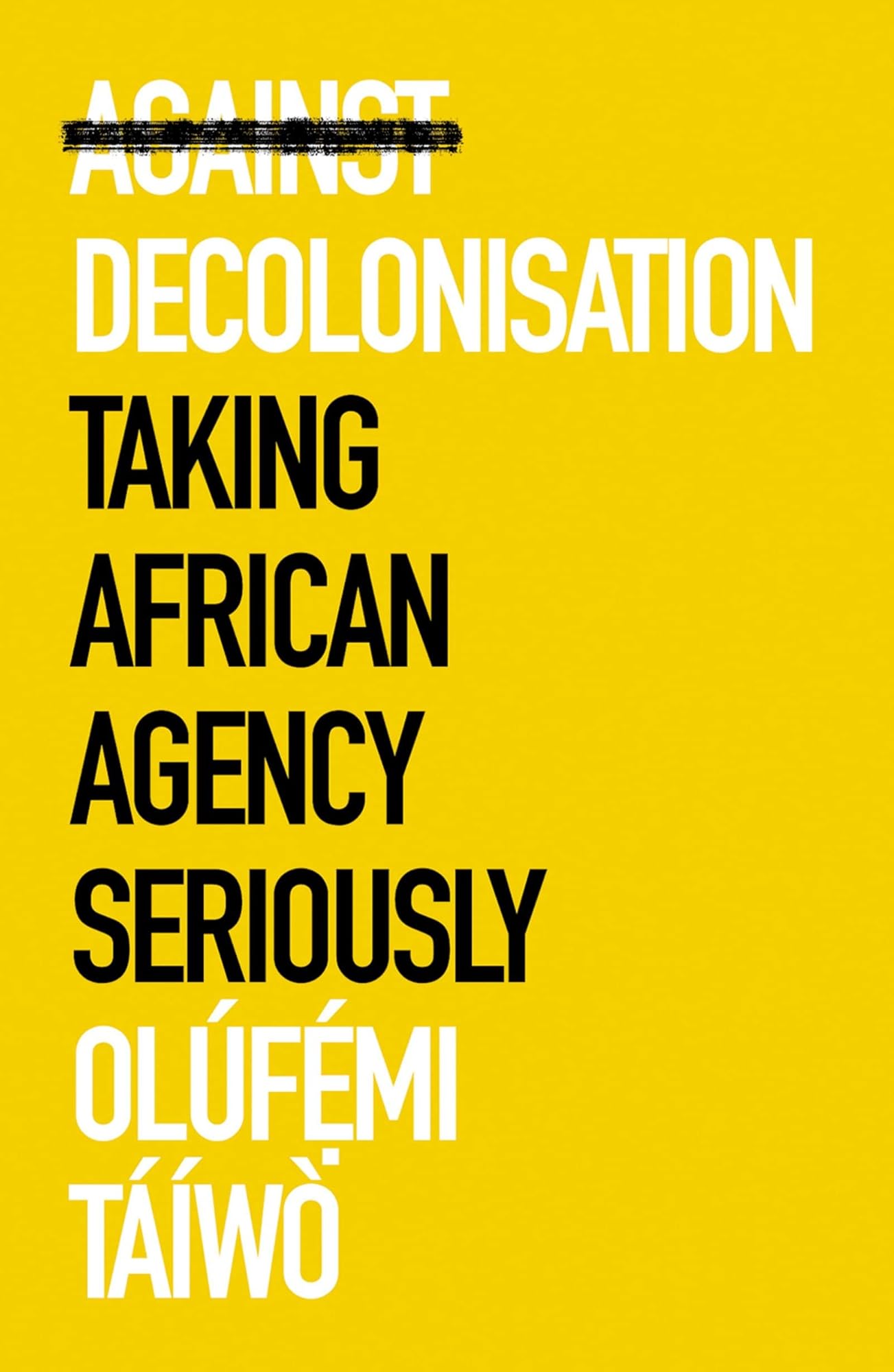
Against Decolonization

Again, it would be an unwarranted stretch to incorporate their preferences into any kind of decolonising discourse. I hope it is becoming clearer why such gross representations are likely to skate over deep issues at the granular levels.
Olúfemi Táíwò • Against Decolonization
Decolonisers hardly, if ever, engage with Kwasi Wiredu’s call for a ‘critical and constructive analysis’ of ‘African culture’, which is rendered imperative by ‘the exigencies of the cultural transition that is taking place in contemporary Africa’.
Olúfemi Táíwò • Against Decolonization
‘Decolonisation’ today, however, has come to mean something entirely different: forcing an ex-colony to forswear, on pain of being forever under the yoke of colonisation, any and every cultural, political, intellectual, social and linguistic artefact, idea, process, institution and practice that retains even the slightest whiff of the colonial
... See moreOlúfemi Táíwò • Against Decolonization
Decolonisation1 is simple, straightforward and genuinely universal in its theoretical scope. From Greece in 1821 to Turkmenistan in 1991, from the United States in 1776 to Gambia in 1966, when a polity is decolonised, its members, at a minimum, recover the capacity to become history-makers again—
Olúfemi Táíwò • Against Decolonization
referred to the ending of colonisation and the coming to sovereign status of the polities that had chafed under colonial rule. Its scope covered two clearly defined areas: politics and economics. Perhaps I have put this too simply. As I have argued elsewhere, colonisation has many iterations and is not one entity. But the implicit assumption in the
... See moreOlúfemi Táíwò • Against Decolonization
invite decolonisers to apply their critical tools to the omissions in their discourse that we introduce in this book. Where in their intellectual framework is the place for Sunny Ade and Fela Sowande?
Olúfemi Táíwò • Against Decolonization
was almost an epiphany when I realised that long before any one of us students in Ìbàdàn or Cotonou had been born, our future mindsets had already been laid out. Our preferences—from victuals (bread/le pain and beer/le vin) to colonial capitals (London/Paris) to philosophical orientations (empiricism/phenoménologie)—had already been rigged in ways
... See moreOlúfemi Táíwò • Against Decolonization
That the options of former colonies are still limited by colonialism is what decolonisation2 sets up as the main element of its discourse. And it is what I attack because it misunderstands the problem to be solved and generates confusion.
Olúfemi Táíwò • Against Decolonization
Jùjú, the genre within which Sunny Ade excels, has its roots in Yorùbá civilisation, but it emerged within the modern performance subculture that began with the proliferation of Christianity in West Africa from the early 19th century. Unlike other genres in Yorùbá music, which hew more closely to their roots, Jùjú has at its core musical
... See more